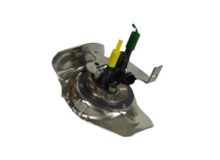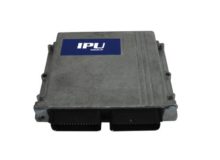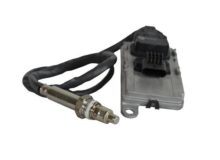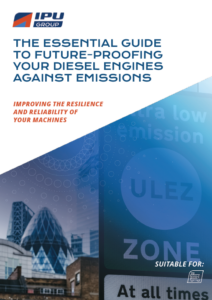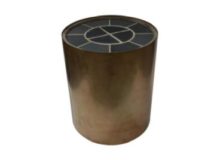Selective Catalytic Reduction system (SCR)
How does Selective Catalytic Reduction work?
Selective Catalytic Reduction for gensets (also know as SCR) will reduce NOx emissions by combining exhaust gases with the reductant AdBlue (a type of urea) and passing it over a catalyst. AdBlue is 32% ammonia dissolved in purified water. It is handled in diluted form as it is much less harmful.
When AdBlue passes over the SCR catalyst, a chemical reaction happens that converts nitrogen oxides into less harmful nitrogen, water and sometimes carbon dioxide, which is then expelled through the exhaust.
It’s called ‘Selective’ because the process specifically targets NOx. The reaction is known as ‘Reduction’ because the AdBlue is a reducing agent, converting the NOx into nitrogen, water and CO2.
- Our Emissions Solutions system has recently been awarded the Innovation and Technology Award 2018 from AMPS!
What is a Selective Catalytic Reduction system?
In simple terms, an SCR system consists of:
- An SCR catalyst
- A hydrolysis mixing section
- A long piece of piping to promote the removal of water from the AdBlue and the mixing of the AdBlue with gases.
- AdBlue injector(s)
- More than one may be required depending on the size and duty cycle of the engine.
- A control system
- The control system monitors the temperature pre- and post-catalyst, engine NOx output, tailpipe NOx output and engine load. All of these figures are used to work out the volume of AdBlue to be injected into the system.
- An AdBlue injector
- The control system, monitoring NOx levels and calculating dosing limits
- A NOx and oxygen sensor
The AdBlue is injected and mixes with the exhaust gases, before entering the catalyst chamber. The NOx reduction reaction takes place as gases pass through a catalyst chamber.
Selective Catalytic Reduction and NOx control
Selective Catalytic Reduction for gensets will be particularly important to comply with the MCPD. The MCPD imposes a NOx limit of 190mg/Nm3@15%O2 to all combustion plant/generators in the 1-50MWth range.
IPU’s SCR system alone can achieve a 99.8% reduction of NOx emissions.
We regularly hold demo days to showcase our SCR emissions system in action. If you would like the opportunity to visit IPU in West Bromwich, talk to our emissions experts and see a live demonstration, register your interest for the demo days here.
As the MCP Directive refers to monitoring NOx levels closely and reducing them, SCR systems will play a central part in complying.
Video: emissions reduction in action
This short video shows our emissions system, consisting of an SCR and a DPF, in action on our genset here at IPU.
Unique airless dosing system
IPU cleverly meter the dosing rate of AdBlue. This helps to reduce the lifetime costs of your system, cuts the likelihood of AdBlue blockages and reduces maintenance.
Our dosing system uses uncommon but extremely effective technology. It’s a 3rd generation airless dosing system. The cooling of the injector is done by the return flow of the AdBlue. The injector has a defined cleaning strategy, so air is not necessary.
The airless dosing system reduces the possibility of AdBlue oxidising in the dosing lines and crystalising. This would impair the exhaust, degrade the performance of the SCR unit and possibly choke the generator. The subsequent repair would be significant.
- Here, you can see a mixing pipe that is blocked by crystallised AdBlue
The closed loop system used to inject the AdBlue reduces the volume of AdBlue required, meaning less deliveries and less storage space required on site. The closed loop system will also reduce wastage.
To safeguard the system even further, a back-pressure sensor is put before the SCR system. Monitoring the back pressure before the SCR will monitor the overall system effectiveness. If pipework has become damaged or has been removed (due to theft) and there is insufficient back pressure, the sensor will prevent the dosing of AdBlue. This will help to prevent ammonia slip and further damage being caused to the engine.
Greatly reducing ammonia slip
The controlled usage of AdBlue will greatly reduce ammonia slip, which is common when too much AdBlue is used as a method to reduce NOx or is injected at a less than optimal temperature.
An ammonia slip refers to ammonia passing through the SCR unreacted. Exposure to high concentrations of ammonia through inhalation can cause immediate burning to the nose and throat and coughing. Exposure to skin (depending on the concentration level) can cause skin burns and permanent damage. Reducing the usage of ammonia is beneficial to those working around the engines


